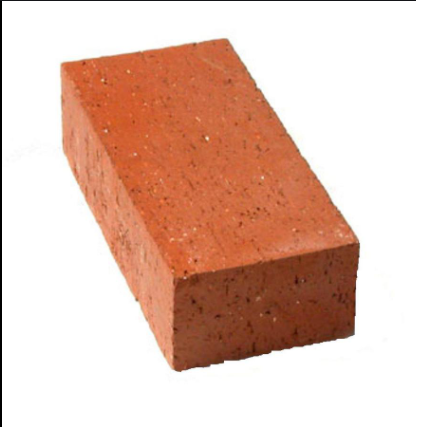Brick is the basic element of any building construction and has been in use since ancient times. In India, bricks are available in many sizes.
The nominal size or Standard Size of a Brick is 19 cm * 9 cm * 9 cm
The conventional size of Brick is 23 cm * 10 cm * 10 cm
The Bureau of Indian Standards has stipulated the following Indian Standard codes for bricks and brick masonry.
Types of Bricks
- Standard Brick: These are bricks made according to Indian Standards. They are 190 mm x 90 mm x 90 mm.
- Hollow Brick: These types of bricks are used for thermal and sound insulation.
- Fly Ash Bricks: These are made by mixing fly ash (a waste product from coal-fired power plants), cement, and water, and then compressing the mixture into moulds.
- Concrete Bricks: These are made by mixing cement, sand, and water, and then pouring the mixture into moulds. They are strong, durable, and resistant to fire and weathering.
Bonds Commonly Used in Brick Masonry
Stretcher Bond
It is used only in 4″ thick brick walls.
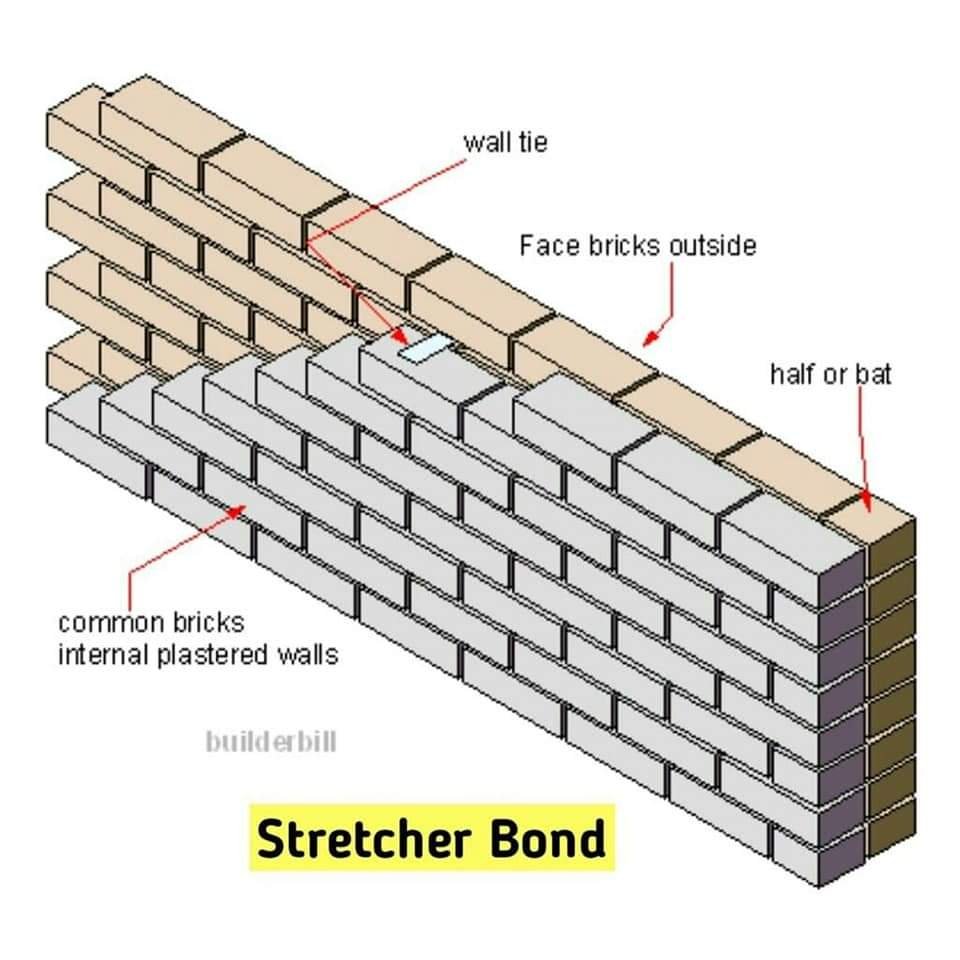
Header Bond
It is used in 9″ thick brick walls.
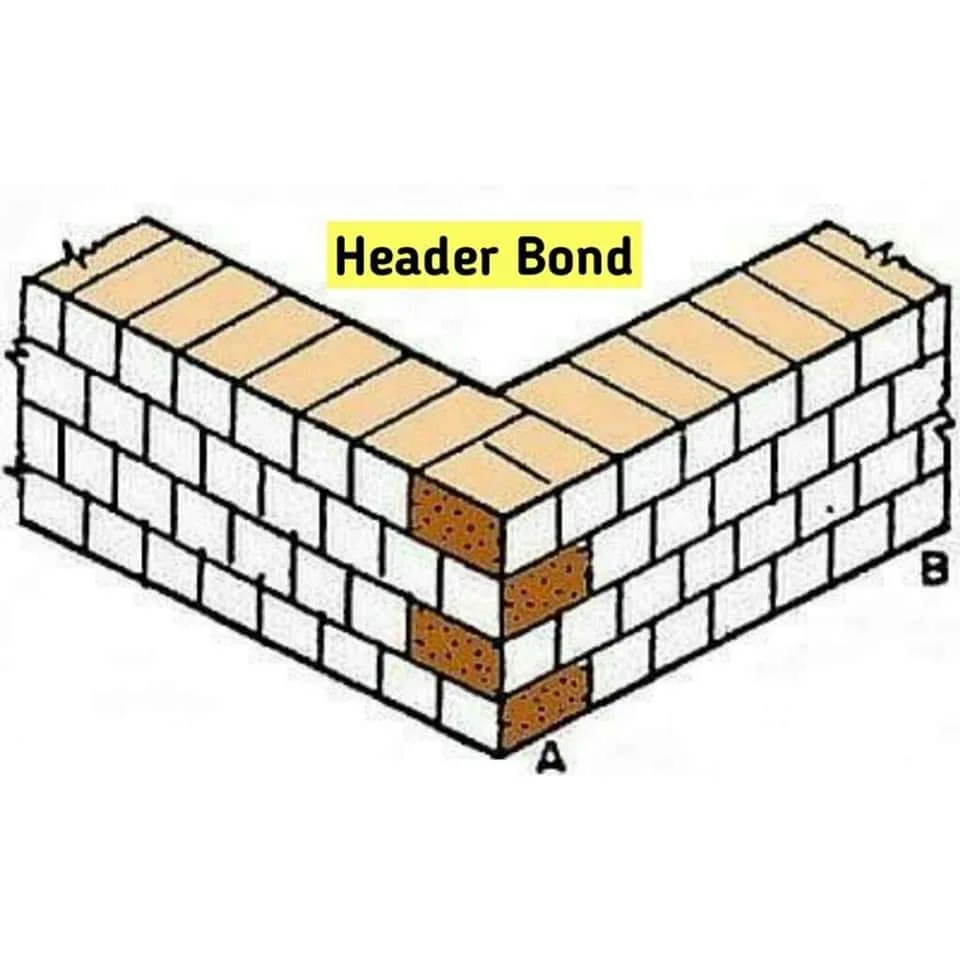
English Bond
English Bond is made by alternate courses of Header and Stretcher bonds. This bond is one of the strongest bond in brick masonry.
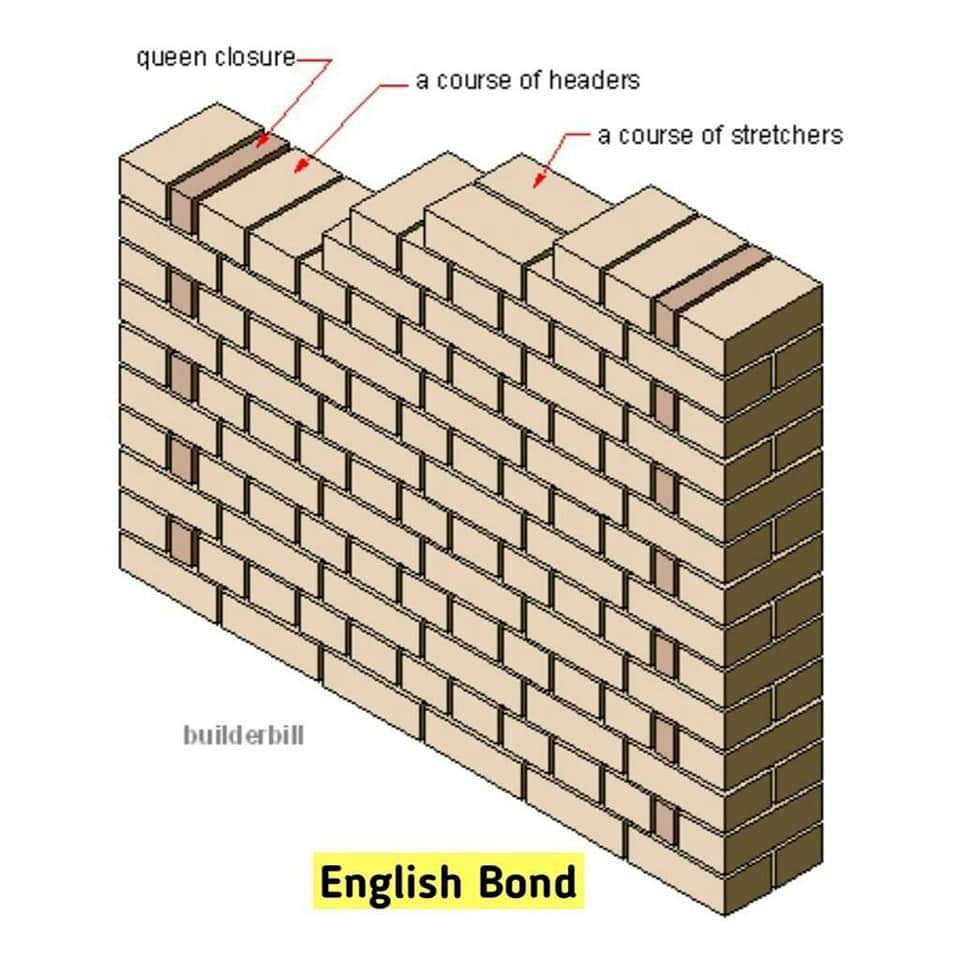
Flemish Bond
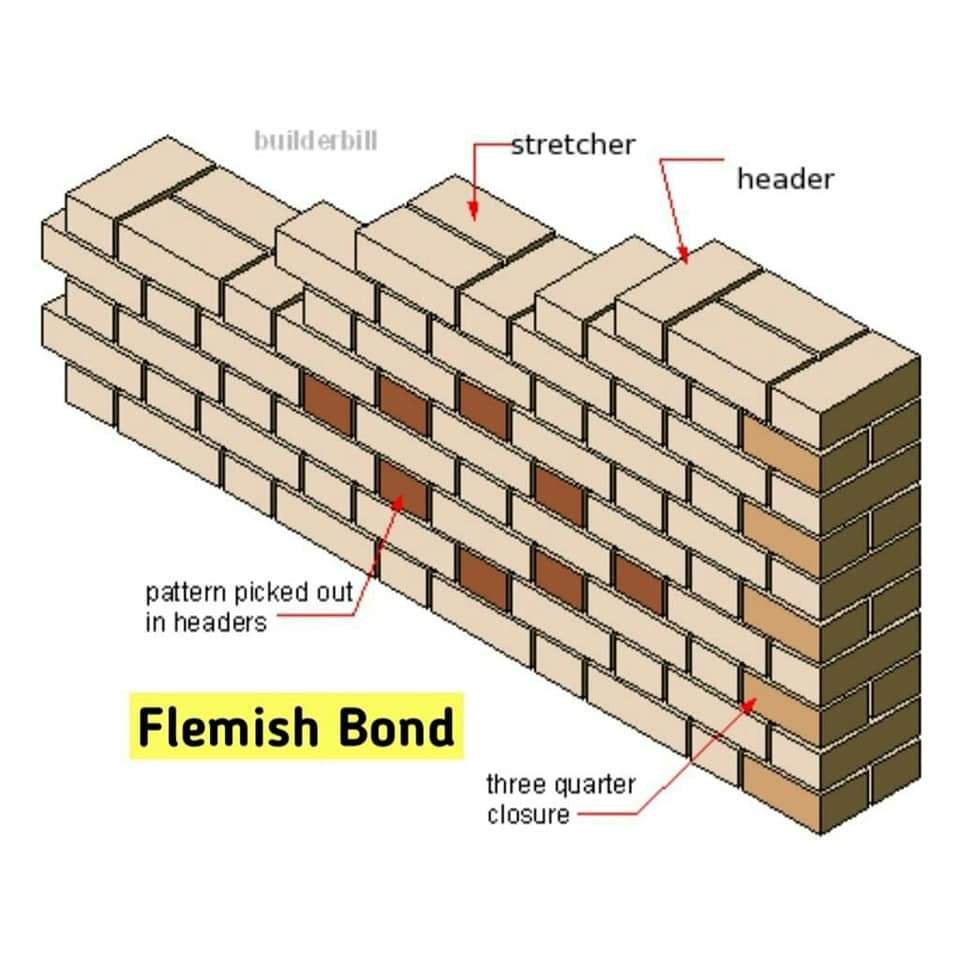
This bond has a better appearance than the English bond, and it is also more economical in construction. This bond could further be divided into two types.
- Single Flemish bond
- Double Flemish bond
Dutch Bond
It is an improved bond over the English bond.
Method to Test Bricks on-site
- When bricks are hit with one another, a ringing sound should be produced.
- When bricks are soaked in water for 24 hours, they shouldn’t absorb more than 20% of water by weight.
- When a brick is thrown from a height of 1 meter, the brick shouldn’t break.
Properties of Good Quality Bricks
- The color of the bricks should be uniform. Also, bricks should have uniform shape and size.
- Bricks should not be overburnt or underburnt.
- Bricks should be free from lime pitting.
- The compressive strength of the bricks should be in range of 2000 to 5000 psi of say 15 MPa to 35 MPa
Important Indian Standard Codes for Bricks and Brick Masonry
- IS:5779-1986 Specification For Burnt Clay Soling Bricks
- IS:2180-1988 Specification For Heavy Duty Burnt Clay Building Bricks
- IS:2222-1991 Specification For Burnt Clay Perforated Building Bricks
- IS:3583-1988 Specification For Burnt Clay Paving Bricks
Read Also-
- Types of Contracts in Civil Engineering and Building Construction
- Different Types of Windows – Building Construction
- Types of Staircases in Buildings
- Ideas for Project/Dissertation for Diploma civil engineering or BE/BTech civil engineering
- Hardness v/s Toughness – Engineering Approach
- Types of Estimation in Civil Engineering Projects
FAQs
The frog is an indentation made on the bigger face of the brick having the name of the manufacturer. The frog ensures good bonding.
The density of brick masonry is 2000 kilograms per Cubic Meter.
500 bricks are required for 1 cubic meter of masonry construction.
